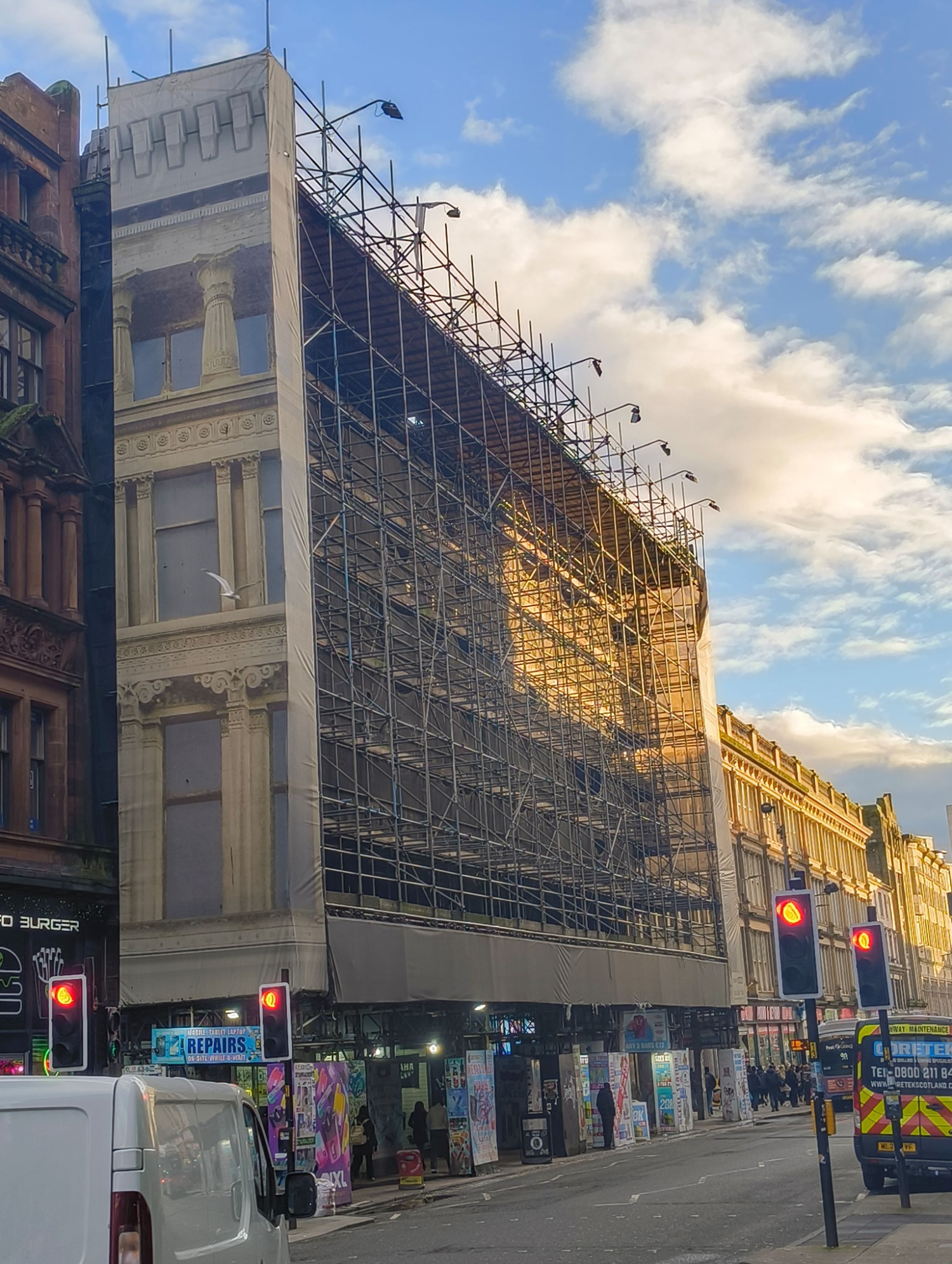
A Glasgow City Council committee has given approval to the investigation into the use of compulsory purchase order (CPO) powers to acquire the Egyptian Halls on Union Street in the city centre.
The A-listed building, designed by renowned architect Alexander ‘Greek’ Thomson, has been vacant and derelict at the upper floors for over 30 years and been on the national Buildings at Risk register since 1990.
Scaffolding has been in place for 15 years but is not being used to facilitate repairs, conversion or maintenance or serving any structural need, and is causing environmental, social, and economic blight, the council said.
Despite the council having engaged in discussions regarding the condition of the building and its potential re-use for over three decades, the condition of the property has deteriorated in recent years, it added.
Glasgow City Council continued, “There does not appear to be a viable scheme being developed or proposed by the current owners and without intervention, there is an increased risk of significant failure in the fabric of the building.
“No applications for planning permission for reuse have been submitted by the current owners since 2012, and two recent engineering reports state that the continued decline in the overall building fabric has arisen through a prolonged lack of occupation and ongoing maintenance.”
The council will now produce a development brief which will form the basis to evaluate any bids from interested parties. If this evaluation shows that there is an interested party with a deliverable proposal, the council could then consider promoting a back-to-back CPO to buy the building for this interested party. This is a complex legal process and there is not a timeline for when this process might conclude, the council added.
The council’s investigation into the use of a CPO will determine whether there are other parties interested in acquiring the building, as well as considering any proposals which the owners might bring forward.
If successfully concluded, the local authority said that the CPO will transfer the property to a party which has best satisfied the development brief and come forward with a viable plan for the future of the building.
Further to this, in a bid to prevent a significant deterioration occurring which the council said would result in an immediate public safety issue, a repairs notice using building standards powers will be served on the owners to address the condition of the façade and parapet wall. Once repairs are actioned by the owner, or the council if necessary, further action will be considered and taken as appropriate to secure the removal of the scaffolding.
Councillor Ruairi Kelly, convener for built heritage and development at Glasgow City Council, said, “This decision can be a huge step forward for the future of the Egyptian Halls, helping return this fantastic building to its rightful place as an architectural treasure of national significance.
“Compulsory purchase orders can be lengthy and complex legal processes, but this decision gives the council the approval we need to explore how we can use these powers to acquire the halls and put it on the path to restoration and a full and proper use. I’m sure Glaswegians will want to see such an integral part of this city’s built heritage play a role in its future.”








